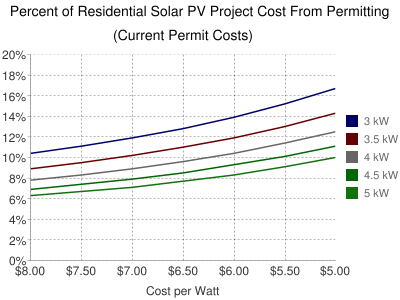A few weeks ago we posted on the adverse impact of solar permitting fees on residential and other small-scale distributed solar PV projects. Vote solar provides an update and progress in Colorado:
Vote Solar recently teamed up with COSEIA to collect and evaluate the current state of [solar] permitting in 34 local jurisdictions throughout the state. Survey says? In practice, solar permitting requirements vary widely from one jurisdiction to the next due to different permitting plan review processes and other extraneous fees. This has resulted in piecemeal local permitting practices that are often costly, complex, non-transparent and time-intensive. The process is arduous for solar installers and increases costs to consumers. Among the 34 cities and counties surveyed, Breckenridge, Colorado Springs, and Denver are doing permits on the fast and cheap. On the slower, more expensive end are Arapahoe County, Aurora and Commerce City…
The findings reinforce the need for Colorado’s juridications to adopt standardized, streamlined solar permitting practices. The Colorado Fair Permit Act (HB 11-1199) has passed out of the House on a 64-1 vote and now moves on to the Senate. Stay tuned!
Solar permitting remains a looming cost barrier to distributed solar, so it’s great to see that Vote Solar’s Project:Permit is gaining traction.
Update 6/7/12: Colorado’s Fair Permit Act was signed into law in June, 2011, requiring permit fees to be based on the actual cost to issue the permit and not to exceed $500 for a residential solar project or $1,000 for a commercial one.



